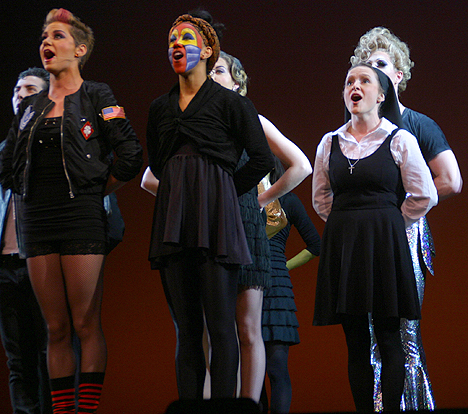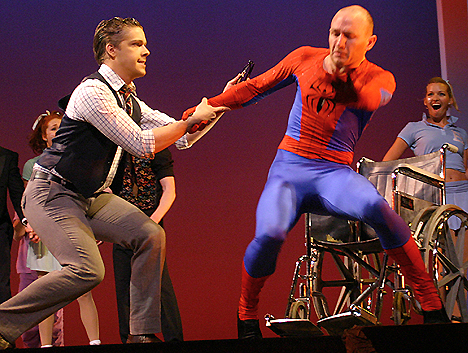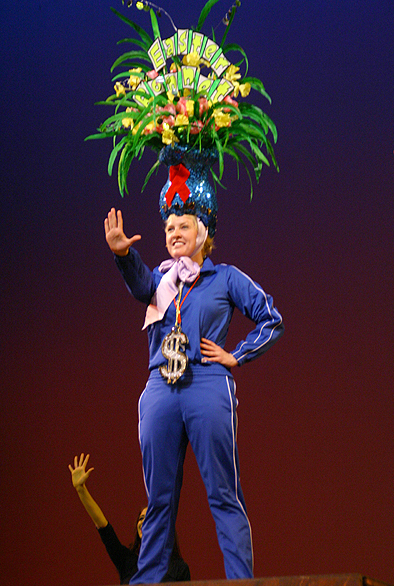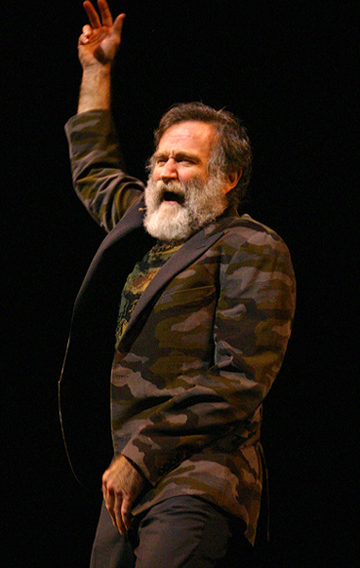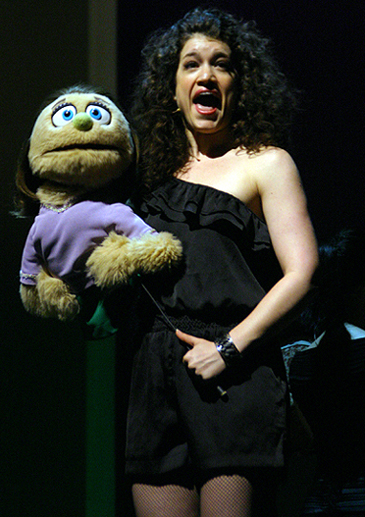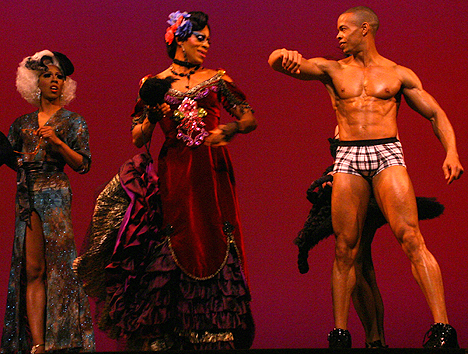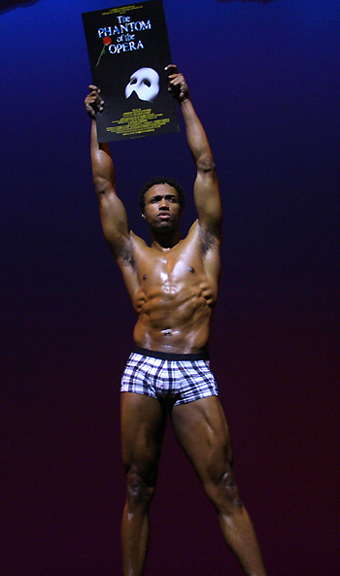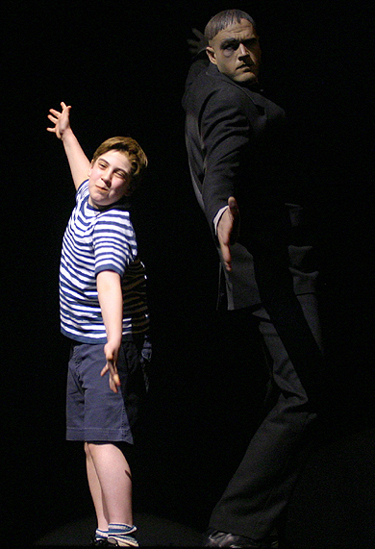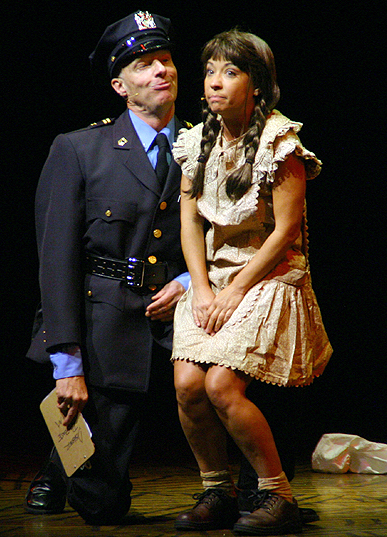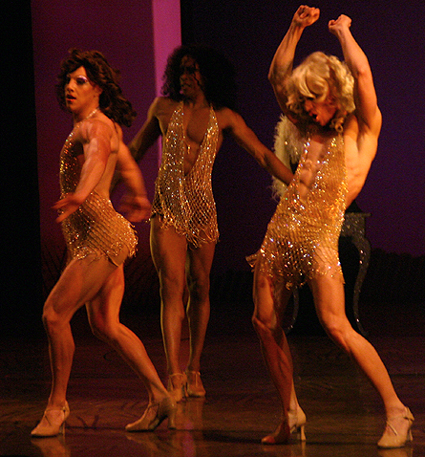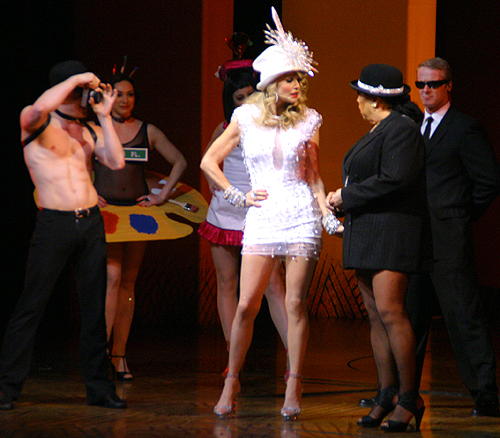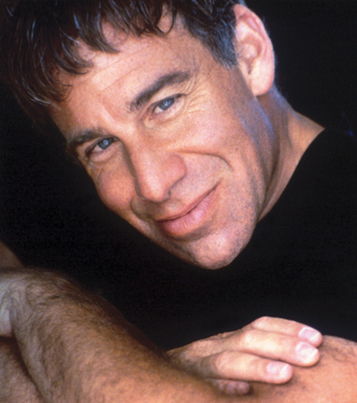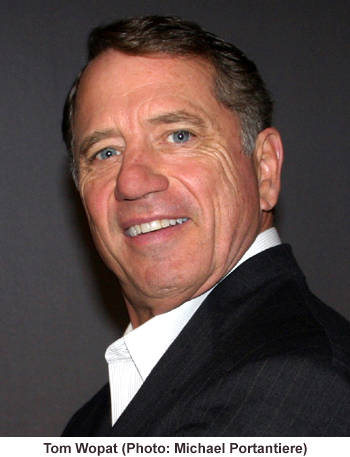
Although Tom Wopat is probably still best known as the co-star of the wildly popular 1979-85 TV series The Dukes of Hazzard, he has 10 Broadway shows to his credit -- six of them within the past 10 years. He's currently co-starring as Frank Abagnale, Sr. in Catch Me If You Can, playing papa to Aaron Tveit. His recent endeavors include some stellar nightclub work, an appearance in the Broadway Series at The Town Hall, and a terrific new album titled Consider It Swung. On Monday, May 2, he'll join Angela Lansbury, Tyne Daly, Michele Lee, Maurice Hines, Cheyenne Jackson, Kelli O'Hara, Christine Ebersole, Gregg Edelman, and other notables at Carnegie Hall for a New York Pops gala celebrating the legendary Bob Hope. Somehow, Tom recently found the time to talk with me over coffee at a diner on Eighth Avenue.
**********
BROADWAYSTARS: Hey, I just walked by the TKTS booth and there was a young woman in a stewardess outfit, handing out flyers to Catch Me If You Can.
TOM WOPAT: Good! It's a fun show. It may not be a critic-pleaser, but it's a crowd-pleaser. The house was full for both shows on Wednesday.
STARS: When I saw the show, Frank Abagnale was in the audience, signing autographs at intermission. Have you had much opportunity to speak with him, and if so, what did he tell you about his dad?
TOM: Two main things. First of all, his dad was a straight shooter. He did drink some, but he didn't teach his son to be a con man. His son did what he did as a result of situations he was put in, beginning with the breakup of his parents' marriage. [Frank Jr.] told me, "I found myself in divorce court, and the judge asked me, 'Who do you want to live with, your dad or your mom?' I couldn't make up my mind, so I left." Everything that happened after that was all about a kid doing what he had to do to survive: He wrote bad checks, he pretended to be a pilot and rode in planes all around the world. I mean, it's definitely not the default setting for most people in that situation.
STARS: What was the rehearsal process like for you?
TOM: I always like to work from the outside in. First, I look at how my character affects the others around me. Once I've learned what I have to do physically and vocally, then I can building an internal life for the character.
STARS: Speaking of internal lives of characters, you were excellent in Glengarry Glen Ross.
TOM: Thanks. Similar situation: I found out who I had to be in the show, and then I realized, "Oh yeah, I know this guy. I'm from the Midwest." There were a lot of people who said they didn't recognize me in the first act, and it's not like I was wearing a false nose or anything. That show changed my career. Up until then, I had been playing musical theater leading men for a while, with a certain amount of ability. Then my agent asked me if I would be interested in doing this play, and with the lineup they had for the cast, plus Joe Mantello directing, I had to do it. All those personalities -- Liev Schreiber, Alan Alda, Gordon Clapp -- it was amazing. Some of them got along great, some of them didn't, but Mantello made it all work.
STARS: Do I remember correctly that, at one point years ago, you and your Dukes of Hazzard co-star John Schneider were both on Broadway at the same time in separate shows?
TOM: Yes, he did Grand Hotel while I was doing City of Angels. We've shared some roles over the years; I think he's probably done a Curly somewhere, and I know we've both done Harold Hill. As a matter of fact, we did a show at a casino up in Niagara Falls in January, and we did a dueling version of "Trouble." We also did an arrangement of "Baby, It's Cold Outside." I rewrote the lyrics a little. Guilty as charged!
STARS: Did you have a good time in Sondheim on Sondheim last season?
TOM: It was a great experience working with Stephen. He schooled me on "Finishing the Hat," which was like a graduate course. Watching and listening to Barbara Cook on a daily basis was incredible, and it was exciting to work with Euan Morton. I find him an amazing talent. He sings like an angel -- and I don't generally like tenors.
STARS: The New York Pops salute to Bob Hope sounds like it's going to be really special. What a cast! Do you know Michele Lee?
TOM: Sure. I know everybody.
STARS: Did you ever work with Lansbury?
TOM: Yep, I did Murder She Wrote. I remember that when we got to the big denouement of the episode, where she tells who the murderer is and how he did it, I stood right next to the camera so she could act to me -- and then they put the cue cards right in front of my face, so she couldn't see me at all. It was hysterical.
STARS: Will the Pops concert be your Carnegie Hall debut?
TOM: No, the first time I worked there was in 1996, with the Cincinnati Pops. This Bob Hope show is going to be fun. There's talk of a camel outfit.
STARS: I'm sorry...?
TOM: A camel outfit. Ostensibly for myself and Gregg Edelman, for the "The Road to Morocco." I'm a little worried about that. But I'm a big Bob Hope fan. How can you not be? He was an icon.
STARS: Tell me about your cabaret work and your new album. When was your last club act in the city?
TOM: December 27, at Birdland. I'm going to be back there on June 20. The album is a combination of standards, pop tunes, and originals. One of the originals is by me, and one of the other songs is "50 Checks" by Shaiman and Wittman, which used to be the basis of Catch Me If You Can. It was cut from the show, but it's going to be on the cast album as a bonus truck.
STARS: It seems like you work constantly. Do you have any projects lined up, other than your return to Birdland?
TOM: I did a workshop of a musical called SCKBSTD. Have you heard of it? They just did it at Virginia Stage Company with Bob Cuccioli. There are some really great songs in it, by Bruce Hornsby.
STARS: Maybe that will be your 11th Broadway show. I didn't realize that you were a replacement in I Love My Wife, and that was actually before The Dukes of Hazzard.
TOM: Yes. The show opened in '77 and I went into it in '78, with a guy named Larry Moss. We kind of held the spots after the originals left and before The Smothers Brothers took over. When they went into it, the show became 15 minutes longer from all of the shtick.
STARS: You must have been pretty young for the part.
TOM: I was 26, about 10 years younger than Jim Naughton. I came to New York in the fall of '77 and I was on Broadway in June of '78. On my opening night in I Love My Wife, [producer] Terry Allen Kramer came up to me and said, "You look just like Jim." I think I got the job because I fit the costume.
STARS: Did you do musicals in high school?
TOM: Yes, in Lodi, Wisconsin. We did Where's Charley? I played the romantic lead, not the guy who dresses up. I also did Damn Yankees, as Joe. I always played the leads. But I'm not the lead anymore, dude. I'm the dad.
[For more information on Tom Wopat, or to purchase his CDs, go to tomwopat.com].
